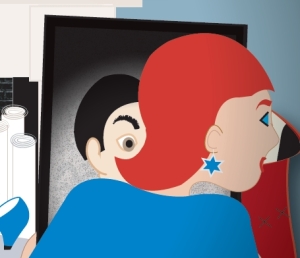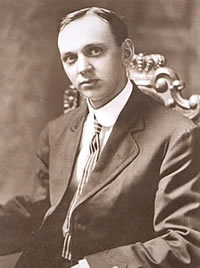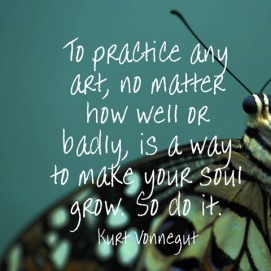new posts in all blogs
Viewing: Blog Posts Tagged with: Dreamwork Methods, Most Recent at Top [Help]
Results 1 - 25 of 29
How to use this Page
You are viewing the most recent posts tagged with the words: Dreamwork Methods in the JacketFlap blog reader. What is a tag? Think of a tag as a keyword or category label. Tags can both help you find posts on JacketFlap.com as well as provide an easy way for you to "remember" and classify posts for later recall. Try adding a tag yourself by clicking "Add a tag" below a post's header. Scroll down through the list of Recent Posts in the left column and click on a post title that sounds interesting. You can view all posts from a specific blog by clicking the Blog name in the right column, or you can click a 'More Posts from this Blog' link in any individual post.
By: frankramer,
on 11/19/2014
Blog:
(
Login to Add to MyJacketFlap)
JacketFlap tags:
dreams,
Uncategorized,
dream,
dream journal,
dreamwork,
healing dreams,
dream journaling,
working with dreams,
On Dreams,
benefits of remembering dreams,
Dreamwork Methods,
dream healing,
evaluating dreamwork,
lucid dream,
progress in dreamwork,
Add a tag
When my students do dreamwork (the recording and working with dreams to learn something from the dreams) on a regular basis, what I sometimes get asked is this: How do I know I am making progress in working with dreams?
This is a good question, because unless I am working with someone who knows a lot about dreamwork such as a dream mentor, the answers may not be all that apparent, especially in the beginning. However, in the long run, progress will definitely become more obvious because of the positive changes the dreamer will see in his or life.
Indicators of progress in dreamwork can be seen in the following:
- Dreams become more vivid and easier to remember. A beginner usually has difficulty remembering dreams. Just having the intention to remember dreams will often prompt the dreamer to remember his or her dreams. Need help in remembering dreams? See Tried and True Tips to Better Remember Your Dreams at http://wp.me/p45aiq-5B
- Dreams seem to “come” when one needs or wants them. Just making the intention to do regular dreamwork or participate in a dream class will often encourage the psyche to offer the dreamer a sudden outpouring of dreams.
- Discovering that dreams do respond to requests for information and wisdom with appropriate insights. Asking for a particular dream (Dream Incubation) and getting a helpful answer is truly empowering for the neophyte starting the study of dreams. It’s like meeting a powerful helper for the first time. This experience gives the dreamer confidence to ask for more help from dreams. For information on incubating a dream see Ask and You Shall Receive: Incubating a #Dream at http://wp.me/p45aiq-71
- Experiencing a lucid dream. A lucid dream is one in which the dreamer feels like he or she is awake and aware in the dream, all the while knowing it is a dream. Conscious choices can be made within the dream. One feels one can create the dream. Like dream incubation, this is an empowering to the dreamer. Lucid dreams can be also be requested for or intended in order to heal, problem solve or gain information.
- Experiencing healing, a solution or guidance in a dream or through information received in a dream.
- Discovering and evaluating what contributions dreams have made. After recording dreams for a significant period of time, one can go back and review dreams to find how they related to events and experiences in waking life during that time. This can be an eye-opening experience of discovery when one sees that many dreams do come true, show the processes and transformations one is going through in life, and support and nurture the dreamer from a deeper source.


By: frankramer,
on 11/12/2014
Blog:
(
Login to Add to MyJacketFlap)
JacketFlap tags:
dreams,
Uncategorized,
dream,
soul,
dream journal,
dreamwork,
dream journaling,
working with dreams,
benefits of remembering dreams,
Dreamwork Methods,
Polls on Intuition,
Dreams and visions,
Lissa Rankin,
loss of soul,
role of dreams in spirituality,
soul in dreams,
soul loss,
Add a tag
Do you feel out of touch with yourself? Do you feel that your culture is shallow and vapid? You are not alone. In 20 Diagnostic Signs That You’re Suffering From “Soul Loss,” Lissa Rankin, M.D., states that this is a very common malady in today’s world. She says not only individuals suffer from this but so do cultures. In my opinion, religions, and in particular, churches can also suffer from it. Whenever we, whether individually or collectively, have lost sight of what animates us, what makes us come alive or what drives us, we suffer from a form of soul loss.
Dreams and holding on to a dream are some keys to recover the soul’s enlivening power in our waking life. Dreams come from the soul itself and speak for the soul and its needs. It is no wonder that so many individuals suffer soul loss when they don’t value their dreams and don’t make an effort to remember them or work with them. Institutions lose soul when they lose sight of the founder’s vision or dream for that organization. This is particularly true of religions and churches which become social clubs or babysitting stations for kids when the ties to a deep spiritual connection have been broken or not promoted among the followers.
Therefore, a remedy for recovering from soul loss is studying about dreams, learning both how to work with them and learning from them:
Individually, this means keeping a dream journal and doing dreamwork on an on-going and consistent basis.
Collectively, this means studying and learning from the dreams and visions of the founders. Institutions can recapture their original dynamism by going back to the basics, to be once again inspired by the founders, learning what defined the organization and why it was started in the first place.
Dreams and visions are all about purposes of soul and how soul presents itself in the world. What is your true dream? In that you will find your true inspiration.


By: frankramer,
on 11/5/2014
Blog:
(
Login to Add to MyJacketFlap)
JacketFlap tags:
dreams,
Uncategorized,
spirituality,
bible,
dream,
Religion and Spirituality,
dreamwork,
working with dreams,
On Dreams,
Dreamwork Methods,
dreams in the bible,
dreamwork as spiritual methodology,
Joseph's dreams,
Add a tag

In Dreams: A Way to Listen to God Morton Kelsey says, “…the Church has developed no theory that can bring the spiritual world closer to human beings.” This is a powerful statement. One would think that it would be a primary function of Christian religions to do this. Instead, the mainline Christian churches have traditionally offered biblical and theological studies which provide intellectual and cultural understandings of Christianity, but have moved away from experiential forms of spirituality which might let us personally “taste and see” the glory of God. I think this is one reason so many people have left mainstream Christianity to explore yoga, meditation and other experiential approaches to connecting to something greater. Yet, as Kelsey points out in his book, dreams have always been part of the Judeo-Christian tradition, and he heartily recommends using them as a spiritual methodology to bring the spiritual world closer to us.
It’s not like the spiritual world isn’t trying to contact us. It does so nightly in our dreams! But how few people make an attempt to remember their dreams, and of those who do, how few make it a practice to honor, record, reflect and learn from their dreams?
One only has to pick up a Bible and see the frequent references to dreams and the important role they played in shaping people’s lives. People who could interpret dreams, like Joseph and Daniel, were held in high esteem because it was thought that God spoke through dreams. In the Bible, the information received in dreams is shown to be very important such as in predicting times of flood or famine or helping a person in need. Joseph, the husband of Mary, was one of many who received an important message in a dream. He was told to not worry in taking Mary as his wife since the child she had conceived came in a most unusual way. All these characters in the Bible worked with and let dreams shape their lives—even when their lives depended upon it.
Perhaps, if we let God into our lives through our dreams, our lives would take on a much greater meaning and significance compared to the trivial and myopic views we hold in an uninformed waking life that is often driven by the demands of others as well as egoistic and material needs.


By: frankramer,
on 10/28/2014
Blog:
(
Login to Add to MyJacketFlap)
JacketFlap tags:
Uncategorized,
dream,
insight,
dream journal,
recording dreams,
intuitive insight,
dreamwork,
dream journaling,
working with dreams,
On Dreams,
benefits of remembering dreams,
Dreamwork Methods,
insights from dreams,
Add a tag

Recording Dreams
Dreamwork is the practice of regularly recording and reflecting on one’s dream in a conscious and applied manner with the intention to learn from the wisdom of dreams. It is not an easy task. In fact, it is probably one of the most challenging projects a person could take on, and yet, possibly one of the most rewarding.
Freud said dreams were “the royal road to the Unconscious.” Connecting to dreams is a direct method to connect to the Unconscious, the deepest part of you. So if you want to really get to know yourself through and through, doing dreamwork is one of the best ways to do it.
By committing to dreamwork, you are giving permission to the Unconscious to inform your waking life, bringing new and often challenging insights into a consciousness that is often protected from this greater reality by a tough Ego that wants to be safe, secure and in control. Often, the interests of Ego and the interests of Unconscious are at odds. This means:
- You may experience conflicting values in situations where your ego has learned to adapt, appease, turn a blind eye or, conversely, be overly critical and your Unconscious is suggesting a bolder, risky or more loving response.
- You may be presented with information about a situation you would rather not know. Dreams often can see the bigger picture and give information you do not pick up in waking consciousness or they may portend events in the future that may be hard to accept.
- Dreams may show you how powerful you can be if you forgo your fears and act on your dreams. Dreams may show you doing things in dreamtime you are frightened to do in your waking life—but in dreamtime accomplish with ease, grace and sometimes with the help of angelic beings. This is why the phrase “If you can dream it, you can do it” is so true. It’s like the holographic prototype model has already been tested in dreamtime, proving to you it can work.
By committing to dreamwork, then, you are committing yourself to be open to another level of awareness that calls you to move beyond the constraints of Ego limitations and into a world of limitless possibilities. What can be more exciting than that?


By: frankramer,
on 10/22/2014
Blog:
(
Login to Add to MyJacketFlap)
JacketFlap tags:
dreams,
Uncategorized,
dream,
dream journal,
dreamwork,
dream journaling,
On Dreams,
prophetic dreams,
benefits of remembering dreams,
Dreamwork Methods,
foreknowledge,
dream information,
Hippocrates,
manifesting dreams,
surrealistic,
Add a tag

Hippocrates of Kos taught about dreams indicating illnesses.
If you faithfully keep a dream journal you will notice, over time, many things and events that you dream about come true in waking life. It may be the sequence of events that particularly manifest or it may be that you see a person in dreamtime you never met before–but several months after the dream you meet that person in waking life. Then there are some dreams that don’t appear to have any relationship to current reality or seem so bizarre and surrealistic that it doesn’t seem they could ever be making a true statement about anything.
This raises the question of how do you know if a dream might manifest in waking life? From nearly forty years of dreamwork, I have made these observations about my own dreams. You might see if they apply to your own.
- Very realistic dreams tend to manifest in waking life. If I have a dream that is realistic and probable, i.e., I am driving my own car and not some fantasy car, then it probably has something to do with manifesting something in waking life. For example, any physical ailment which I knew about ahead of time in dreamtime presented quite literally and showed up later on a medical test as when years ago I had a dream in which a voice said I had blood in my stool. A medical test actually concurred with that even though a later colonoscopy proved it was nothing to worry about. This rule applies also in cases where the symbolism is present but there is a clear resemblance such as dreaming of having overflowing pipes and end up having diarrhea. This is possible because there is a close proximity to the symbol and waking reality. In fact, Hippocrates, the father of modern medicine, said much medical and diagnostic information of this sort could be gained from similar dreams.
- Somewhat surrealistic or unrealistic events may be relating events in the far off future. Years ago I had a series of dreams in which I was traveling around Hawaii with my brother. At the time I was living in Massachusetts, and so the possibility of this happening seemed a little far-fetched. The island’s scenery was stylized in my dream, not being typical of a specific place on any of the islands. Yet, as I read my dream journal years later, I found that after I moved to Hawaii, we did travel around the island of Oahu as we did in the dream, and we shared certain concerns that showed up in those early dreams.
- Very surrealistic dreams tend to be making a statement about the interior world of the dreamer. Really bizarre, odd or unusual objects in places they don’t usually belong, such as a rare or extinct species of owl in a refrigerator, are most often aspects of the dreamer and need to be looked at as such by asking, “What about me is like this owl?” or “What about me is like the refrigerator?” In this type of dream, I personally have not seen a close or frequent connection to events or objects manifesting in waking life such as opening the refrigerator and finding a rare spotted owl perched next to the orange juice.


By: frankramer,
on 10/14/2014
Blog:
(
Login to Add to MyJacketFlap)
JacketFlap tags:
dreams,
Uncategorized,
muse,
dream,
lover,
dream talent,
Dead Men Do Tell Tales,
characteristics of intuition,
dreamwork,
healing dreams,
working with dreams,
On Dreams,
benefits of remembering dreams,
Dreamwork Methods,
common dream theme,
dream lovers,
lover in a dream,
Add a tag
Meeting and possibly making love with a very attractive person in a dream is a quite common dream theme, no matter whether it is someone we know in waking life or a mysterious lover who only populates our dreams. In the dream, these encounters are often marked by passion, beauty, and wonder so vivid that upon waking we feel driven to act on the dream—no matter if the person is someone in waking life who is unavailable, a poor choice or someone we don’t know or haven’t even encountered yet!
The importance of the dream is not so much the person referred to but the energy that is evoked in the dream. Powerful energy does, indeed, need acting upon and that is what the dream is asking us to do. However, before going and doing something foolish or regrettable, the thing to remember is that the dream is all about the dreamer. That highly attractive and lovely soul you are encountering is perhaps an aspect of your own loveliness or quality, and it is that which is asking you to recognize in yourself!
Example:
In the dream you are falling for a writer who is physically attractive and highly competent as a writer. Before you go associating this person with someone you know who is a writer, you might ask yourself: Have you thought about becoming a writer? Do you have writing skills you haven’t developed? If so, this dream perhaps is telling you that the profession would be attractive to you and that you would be competent at it! It is like your muse inviting you to this possibility.
If you actually know a writer in waking life that you think this dream symbol represents, you may want to pursue the relationship in real life if the person is available emotionally or otherwise. That person may have a lot to teach you about writing and life itself. The good news is that if this person is a jerk in waking life, or is married with three kids, or you are married, you can still nurture that wonderful energy by recognizing that it is part of you—you can value it by learning about the craft of writing, starting writing, and getting feedback on your writing. Your love will blossom to fruition with the development of a whole new aspect of yourself and you will have avoided a possibly disastrous relationship!


By: frankramer,
on 10/7/2014
Blog:
(
Login to Add to MyJacketFlap)
JacketFlap tags:
Uncategorized,
father,
dream,
dad,
intuitive,
dreamwork,
working with dreams,
On Dreams,
Dreamwork Methods,
dream symbol,
dad in dreams,
dream dictionary,
dreaming of dad,
dreams of father,
father in dreams,
Add a tag

Dreaming of One’s Father
The appearance of the father in a dream is one that is loaded with significance because of the rich and deep associations, perhaps very negative or very positive, with our experience of having a father. My own long relationship with my father was one of the richest (full of ups and downs) and best and most supportive in my life so this week when I had the unusual occurrence of two dreams about him around the 8th anniversary of his death I decided to take a closer than usual look at this powerful dream symbol.
Look for Personal Associations
I first looked at my personal association the father symbol. Reflecting on this symbol made me realize first and foremost the supportive and caring association I had with my father. So his image in the dream represents for me caring and supportive energy that is near me now, even though he has passed.
Look for Conventional Associations
I next perused various dream dictionaries for the usual explanations of the symbol of the father. Depending on the dream dictionary, there were often many and varied meanings ranging from the father being a symbol of power, authority, and the law to being a harbinger indicating difficult times were coming and that one should seek wise advice.
Reflect More Deeply
When I research various meanings like this, I consider it a form of brainstorming. I am not ready to accept the answers I find at face value. I just want to see all the general associations with the father out there, perhaps coming across some I haven’t seen before. While doing this, I look for any of these to have a meaning that resonates with me, an association that might feel like it has a meaning tailored for me in my specific dream. I ran across one such meaning I hadn’t seen before and it resonated. A dream about the father, in Arabic and Islamic traditions, and found at http://dreamingthedreams.com/meanings/Father/ means help for a waking issue will come from sources one doesn’t anticipate.
Stick to the Feelings in and Generated by the Dream
This meaning was valid specifically for me because it connected the feelings in the dream and those generated by the dream with what has been going on in my life. In both dreams, my father was feeling confident and happy. He wasn’t trying to warn or help me, which means that part of me in the dream that is represented by my father is apparently happy and satisfied! This is odd because recently I have made a risky career choice my father wouldn’t necessarily have approved of when he was living, which is resulting in a situation where I need help but from sources I can’t imagine. I have tried all the usual solutions and sources I know of and none have yet worked; however, other dreams of mine indicated that help will come—even though the source was not revealed. When I read this last interpretation of help coming from unexpected sources, it tied all the meanings and feelings together and comforted me.


By: frankramer,
on 10/1/2014
Blog:
(
Login to Add to MyJacketFlap)
JacketFlap tags:
disrespect of self,
dreams,
Uncategorized,
dream,
intuitive,
self-respect,
self-destructive behavior,
negative behaviors,
intuitive insight,
Intuitive insights,
working with dreams,
On Intuition,
Intuitive Methods,
On Dreams,
benefits of remembering dreams,
Dreamwork Methods,
Meditation Methods,
dream healing,
Add a tag

Where Does Self-Respect Come From?
5 Signs You’re Not Respecting Yourself by Vironika Tugaleva is a good article about the negative behaviors that can pull us down, indicating that our self-esteem is plummeting. If these behaviors become habitual patterns they can be very self-destructive and undermine our relationships with other people.
Usually these behaviors manifest because, for any number of reasons, we are not in touch with our true self, and so don’t respect who we are. Dreamwork and accessing intuitive insight are great tools that can counteract any tendency to disrespect ourselves because the on-going practice of these exercises can lead to a healthy awareness of who we truly and uniquely are at the deepest emotional and spiritual levels. These exercises tap us into the root of our being and nourish us with information that gives the bigger picture, the grander vision and the substance of things. They can also give us specific answers to problems and concerns we may have. Instead of being buffeted around by the questionable and often enslaving pressures and opinions of those around us, we are fed by healing truths that are custom made for each of us in a way that meets the problem at hand while preserving our innate goodness and integrity. The end result is that we can behave in a manner that is worthy of respect, both from others and from ourselves!
Example: When I start to feel jealous of someone’s life, thinking it is better than mine, I can ask for a dream will give me guidance on how I can get more out of my own life, being very specific in the questioning to indicate what makes me jealous of someone else and what I might need to fulfill my own life. Asking for a dream to help resolve an issue is called incubating a dream (Ask and You Shall Receive: Incubating a Dream), and it can become one way to work through an issue.
The same can be done by an intuitive meditation such as the Inspired Heart™ Meditation. Prior to doing the meditation I can ask for insight to come. During the meditation I observe the breath and quiet the mind. I then make a heart connection, and receive the insight that comes.
No matter if I work with a dream or in a meditation, the occasion may become a turning point in my life that encourages me to face my feelings, and work towards resolving my issues based on information I have received from a profound inner source and not someone’s opinion or outside pressure. With regular practice I will find that such empowerment will lead to a healthy self-respect. I will come to experience that I am a Child of God, fed and cared for by divine sources, and placed on this earth for an important purpose that only I can serve. What better basis for self-respect can there be?


By: frankramer,
on 10/1/2014
Blog:
(
Login to Add to MyJacketFlap)
JacketFlap tags:
dreams,
Uncategorized,
dream,
intuitive,
self-respect,
self-destructive behavior,
negative behaviors,
intuitive insight,
Intuitive insights,
working with dreams,
On Intuition,
Intuitive Methods,
On Dreams,
benefits of remembering dreams,
Dreamwork Methods,
Meditation Methods,
dream healing,
disrespect of self,
Add a tag

Where Does Self-Respect Come From?
5 Signs You’re Not Respecting Yourself by Vironika Tugaleva is a good article about the negative behaviors that can pull us down, indicating that our self-esteem is plummeting. If these behaviors become habitual patterns they can be very self-destructive and undermine our relationships with other people.
Usually these behaviors manifest because, for any number of reasons, we are not in touch with our true self, and so don’t respect who we are. Dreamwork and accessing intuitive insight are great tools that can counteract any tendency to disrespect ourselves because the on-going practice of these exercises can lead to a healthy awareness of who we truly and uniquely are at the deepest emotional and spiritual levels. These exercises tap us into the root of our being and nourish us with information that gives the bigger picture, the grander vision and the substance of things. They can also give us specific answers to problems and concerns we may have. Instead of being buffeted around by the questionable and often enslaving pressures and opinions of those around us, we are fed by healing truths that are custom made for each of us in a way that meets the problem at hand while preserving our innate goodness and integrity. The end result is that we can behave in a manner that is worthy of respect, both from others and from ourselves!
Example: When I start to feel jealous of someone’s life, thinking it is better than mine, I can ask for a dream will give me guidance on how I can get more out of my own life, being very specific in the questioning to indicate what makes me jealous of someone else and what I might need to fulfill my own life. Asking for a dream to help resolve an issue is called incubating a dream (Ask and You Shall Receive: Incubating a Dream), and it can become one way to work through an issue.
The same can be done by an intuitive meditation such as the Inspired Heart™ Meditation. Prior to doing the meditation I can ask for insight to come. During the meditation I observe the breath and quiet the mind. I then make a heart connection, and receive the insight that comes.
No matter if I work with a dream or in a meditation, the occasion may become a turning point in my life that encourages me to face my feelings, and work towards resolving my issues based on information I have received from a profound inner source and not someone’s opinion or outside pressure. With regular practice I will find that such empowerment will lead to a healthy self-respect. I will come to experience that I am a Child of God, fed and cared for by divine sources, and placed on this earth for an important purpose that only I can serve. What better basis for self-respect can there be?


By: frankramer,
on 9/24/2014
Blog:
(
Login to Add to MyJacketFlap)
JacketFlap tags:
discussing dreams,
dreamwork,
working with dreams,
On Dreams,
Dreamwork Methods,
dream symbolism,
dream is about the dreamer,
awakening of consciousness in dreams,
dream information,
energy in dreams,
dreams,
Add a tag
Chances are someone told you, “I had a dream about you.” All of us dream during sleep and we often dream about people we know personally. Since many people remember their dreams, they may mention a dream about you, even if it is weird, sexual or frightening. In these cases, the dream conversation can be unsettling to both the dreamer and the one dreamed about. For example, let’s say that Tom is a project manager who supervises a technician named Raymond on a big project. Tom has the following dream which he relates to Raymond:
Tom sees Raymond wearing Superman’s attire and flying over tall buildings.
Responding to Dream Information
On hearing this dream, Raymond, on one hand, feels happy about the dream because it seems to reflect that his boss holds him in high esteem, feeling he can do anything. On the other hand, it makes Raymond uneasy because they both are about to start a really challenging project, and Raymond wonders if he can live up to his supervisor’s unrealistic imagery of his abilities. If Raymond is interested in pursuing this remark to get better insight into his boss and their relationship, he might say something like, “It sounds like you think I am very capable. Thanks for your confidence in me. While I always try to do my best, remember I’m not Superman. ” That’s probably as far as most people would take the conversation. Added insight can be gained, however, if the person being dreamed about understands:
- You Can’t Interpret Another Person’s Dream
- The Dream is About the Dreamer
- The Dream Has Many Levels of Meaning
Raymond needs to understand that you can’t interpret another person’s dream. The dream is about the dreamer, in this case Tom. The key to understanding the dream is to understand what Raymond means to Tom, and if Tom isn’t willing to share this perception, Raymond really can’t know the real or full meaning. Raymond may get clarification on the dream by asking, “Do you really have such a high opinion of what I can do?”
While the dream may mean that Tom does have a high opinion of his technician, Raymond, and thinks he can tackle many tasks; however, on a deeper level, it may also mean that Tom has been feeling uncertain about tasks he needs to accomplish and he is using Raymond’s abilities as the standard for excellence. At a still deeper level, and taking the dreamwork method of all things in the dream are part of the dreamer, the dream may also symbolize some issue or new awareness that only belongs to Tom, having little to do with Raymond personally. Perhaps Tom realizes he is getting better at tackling the technical aspects of his own job. Tom’s perception of Raymond may have been the catalyst to awaken this new and powerful energy within himself! By comparing himself to his able employee, Tom realizes he, too, can soar.
So while Raymond may take his supervisor’s dream as a compliment, Raymond should not make too much of his supervisor’s dream in thinking it pertains just to him. More than likely, it also has to do with something new happening within Tom, and if Raymond is sharp he will be on the lookout to see changes in his boss.


By: frankramer,
on 9/17/2014
Blog:
(
Login to Add to MyJacketFlap)
JacketFlap tags:
dreams,
Uncategorized,
Henry Reed,
the dreamer,
Edgar Cayce,
dreamwork,
working with dreams,
On Dreams,
Dreamwork Methods,
dream healing,
intuitive healing,
dream incubation,
dream experts,
helping another,
Add a tag

Dreaming for Another
It is often said by dream experts that the dream is all about the dreamer so when we work with a dream we use methods that help the dreamer see each part of the dream as being a part of herself or himself. When this is done and the dream is worked through, the dreamer receives gifts of insight, solution and healing. If I can help myself through my dreams, can I use them to help other people—even though they are about me?
The answer is a definite “Yes!” In fact, studies done by Henry Reed, Ph.D. of the Edgar Cayce Institute for Intuitive Studies have shown that dreams are very effective when they are intended to help another person. Dr. Reed has even demonstrated in The Dream Helper Ceremony that a group of dreamers can intend to have a dream that will help a member of their group—and can even do so without that member even conveying the nature of his or her issue! The group of dreamers report dreams that can give more helpful information, often diagnose the issue, or possibly provide a solution for the member seeking help. These dreams also, at the same time, offer an important message solely for the person who dreamed the dream. On doing this exercise in my dream classes I found the same results among the class participants.
Why? It seems that empathy is at work here on the part of the dreamer. The intuitive dreaming mind is naturally, and all along, creating problem-solving solutions for the dreamer. This is its nature. In order to keep helping the dreamer and to answer the request to help another, the dreaming mind apparently creatively comes up with a dream scenario that will match the needs of both the dreamer and person being dreamed for. The dreaming mind thus intuits both the needs of the dreamer and the person being dreamed for! So, don’t be shy. Ask for a dream (Dream Incubation) that will not only help you with an issue but will help someone you know who has a problem.


By: frankramer,
on 9/12/2014
Blog:
(
Login to Add to MyJacketFlap)
JacketFlap tags:
Uncategorized,
teenagers,
teen,
dream,
Massachusetts,
intuition,
teen mystery,
intuitive,
young adult mystery,
Gloucester,
Ashlynn Acosta,
Dead Men Do Tell Tales,
healing dreams,
dream journaling,
On Intuition,
benefits of remembering dreams,
Dreamwork Methods,
Too Much of a Good Thing,
Ashlynn,
Add a tag

A Lady Desires a Painting
Artwork by Christine Soltys
For the many who have asked, Ashlynn Acosta will be making her second appearance as the intuitive teen sleuth in Too Much of a Good Thing, a young adult mystery novel set in Gloucester, Massachusetts. In the intriguing story, our heroine deals with issues of hoarding, ownership, greed and possessiveness that lead to a crime.
The problematic relationship with her single dad, a “just the facts” police detective, has healed through the challenges met and shared in Dead Men Do Tell Tales. Relishing this lively new connection with her dad, Ashlynn suspects any woman seriously claiming her father’s attention. When a beautiful redhead enters the scene, Ashlynn faces the need to solve a mystery in the midst of a budding romance between her father and this most surprising lady. Pressure builds when her buddy group divides into romantic couples and she is paired with a guy who evokes new feelings in her! She is overwhelmed by it all.
Ashlynn’s very first date takes place as she tries to uncover the real mystery in the midst of too much of too many good things. Intuition and real dreamwork are the tools Ashlynn uses to help her understand and act on her new feelings as well as unravel the secrets in a mansion on a hill where a rich old lady has been found dead.
In a Reader’s Guide at the end of the novel, you can learn more about the intuitive tools Ashlynn uses and learn how they can be employed to unlock your own mysteries and solve your own problems.


By: frankramer,
on 9/12/2014
Blog:
(
Login to Add to MyJacketFlap)
JacketFlap tags:
Uncategorized,
teenagers,
teen,
dream,
Massachusetts,
intuition,
teen mystery,
intuitive,
young adult mystery,
Gloucester,
Ashlynn Acosta,
Dead Men Do Tell Tales,
healing dreams,
dream journaling,
On Intuition,
benefits of remembering dreams,
Dreamwork Methods,
Too Much of a Good Thing,
Ashlynn,
Add a tag

A Lady Desires a Painting
Artwork by Christine Soltys
For the many who have asked, Ashlynn Acosta will be making her second appearance as the intuitive teen sleuth in Too Much of a Good Thing, a young adult mystery novel set in Gloucester, Massachusetts. In the intriguing story, our heroine deals with issues of hoarding, ownership, greed and possessiveness that lead to a crime.
The problematic relationship with her single dad, a “just the facts” police detective, has healed through the challenges met and shared in Dead Men Do Tell Tales. Relishing this lively new connection with her dad, Ashlynn suspects any woman seriously claiming her father’s attention. When a beautiful redhead enters the scene, Ashlynn faces the need to solve a mystery in the midst of a budding romance between her father and this most surprising lady. Pressure builds when her buddy group divides into romantic couples and she is paired with a guy who evokes new feelings in her! She is overwhelmed by it all.
Ashlynn’s very first date takes place as she tries to uncover the real mystery in the midst of too much of too many good things. Intuition and real dreamwork are the tools Ashlynn uses to help her understand and act on her new feelings as well as unravel the secrets in a mansion on a hill where a rich old lady has been found dead.
In a Reader’s Guide at the end of the novel, you can learn more about the intuitive tools Ashlynn uses and learn how they can be employed to unlock your own mysteries and solve your own problems.


By: frankramer,
on 9/10/2014
Blog:
(
Login to Add to MyJacketFlap)
JacketFlap tags:
Edgar Cayce,
dream journaling,
working with dreams,
Déjà vu,
On Dreams,
benefits of remembering dreams,
Dreamwork Methods,
dreamtime,
foreknowledge,
waking reality,
You only live twice,
dreams,
Uncategorized,
dream,
foreshadowing,
experience,
Add a tag

Déjà vu: How could I be here before?
, the experience of already having seen something or visited someplace, is a common experience that modern science cannot explain. For example, I might be traveling in a foreign country, visiting a famous place like the Great Wall of China for the first time. All of sudden I get the feeling I have been here and this place is familiar.
After nearly forty years of recording my dreams, and having so many dreams of being in strange places and meeting new people that become manifest in waking life, I am almost convinced déjà vu is an experience of remembering something or someplace previously seen in dreamtime, and the memory surfaces from the long-forgotten, or possibly never-remembered dream when waking reality mimics the earlier experience in dreamtime. I was first made aware of this dual reality when I was in college and had a dream just after my roommate became engaged.
Dream:
I dream of attending my college roommate’s wedding in a white church I didn’t recognize in waking life. The dream is vivid and clear in every detail, especially the completely white color of church exterior, the unusual reddish brown design inside the church and the fact that I am taken to the church in the groom’s parents’ white car, sitting in the right rear seat.
On waking I completely forgot about the dream because I wasn’t in the habit of recording my dreams at this stage of my life. When the day of the wedding arrived approximately six months later, and we were about to go to the church, I was told to ride in the groom’s parents’ white car. As I looked at the car, I suddenly I recalled the dream and remembered I had seen this before, been here and done this! I got goose bumps. Reality then played out according to my dream. I was told to sit in the right backseat, exactly where I was in the dream. On the way to the church I suspected the church would be all white on the outside and inside would have that unusual reddish brown design. And sure enough, it did.
Déjà vu suggests a Similar Dreamtime and Waking Reality
Edgar Cayce and others have stated that in dreamtime we get a foreshadowing of all the important events in our life before they become manifest in waking life. It is in dreamtime where we make choices that may eventually play out in waking time because dreamtime puts us into the future to prepare the way for us. That is one reason why Casey is quoted as saying “Dreams are today’s answers to tomorrow’s questions.” It’s like we are given a trial run. If we are dream-aware, we can make use of this test case scenario. If not, it’s as if we are programmed to follow through with the same decision in waking life as we made in dreamtime.
Living Twice in this Life
This concept of living our life twice, in dreamtime and waking time, is hinted at in popular culture with the James Bond theme song sung by Nancy Sinatra,
“You only live twice or so it seems
One life for yourself and one for your dreams.”
While some may interpret this to mean we live two different lives, one in our dreams (perhaps daydreams) and one in waking life, and these realities might not necessarily match in quality or enjoyment, my experience indicates that night dreams pretty well do match waking life—unless I consciously NOT make a decision I made in dreamtime because I didn’t like the outcome I saw in the dream. However, this type of decision-making requires knowing what was dreamed about and remembering it, perhaps many years after the dream! To me, this is what is meant by getting answers about the future from the dream. If you liked the outcome of your choice in dreamtime, go with it. If not, make another choice.
So the next time you experience déjà vu, consider that you may have passed this way before—in your dreams, and your dreams were preparing you for this experience.


By: frankramer,
on 9/3/2014
Blog:
(
Login to Add to MyJacketFlap)
JacketFlap tags:
dreams,
Uncategorized,
dreamwork,
working with dreams,
On Dreams,
Dreamwork Methods,
dream is about the dreamer,
Fritz Perls,
meanings of dreams,
Add a tag

A Dream Scene: Hopes Rising or a Plane Taking Off?
In working with dreams, there are two common misleading inclinations most people have: they tend to see events in dreams to be literally true or to view them as happening outside the dreamer as actual events in waking life. Perhaps this is because many people tend to find ultimate meaning outside themselves rather than looking within for the answers. Here is an example:
Dream: I am in a plane that is taking off from a bumpy runway. The plane is bouncing around and it makes me nervous.
In this case, the dreamer might think the dream refers to a plane ride he might be taking tomorrow or sometime in the future and the takeoff could be hazardous. While that might be one possible interpretation, leaving it there without further reflection will quite often miss the mark, losing a much more important meaning of the dream altogether.
One of the major milestones for dreamworkers in learning about dreams is to realize that the dream is about the dreamer and what is going on within the dreamer. That is why dreams have been called the Royal Road to the Unconscious. Genuine dreamwork takes us on this royal road. It provides ways to understand and nurture a deeper relationship with one’s own Self. Fortunately, nowadays, dreamwork methods have been developed to help us mine the hidden meanings of dreams which pertain to what is happening within the Unconscious regions the dreamer. One of these established methods for working with dreams is Fritz Perls’ approach of viewing everything in the dream as part of the dreamer.
How to Work with the Dream as if it was “All About Me”
In this approach, I would work with the dream about a plane taking off from a bumpy runway as follows: I would ask myself what part of me represents the plane, what part represents the runway, and what is “bouncing around” in my life? I might associate the plane with my hopes for a new project that is taking off in my life, I might associate the bumpy runway with the bumpy start of the project and the “bouncing around” may stand for my feelings about the whole affair. In this case, my unsteady feelings are challenging the hopes for something developing in my life. For me to move forward in a healthy manner, perhaps the dream is helping me by warning me that I need to pay attention to this project and to my feelings about it—or a disaster could result and I may have many regrets about being part of the project. The dream, then, is calling my attention to a real problem in my waking life right now and not some possible future development. It is saying that within me there is a growing unease about this project.
Sometimes dreams do concern events outside the dreamer but most of the time my experience has been that dreams are always about the dreamer so while dreams may pertain to outside events, they also suggest a parallel metaphor within the dreamer—and this issue is often the difficult one to deal with, and the one most overlooked by the dreamer.


By: frankramer,
on 8/27/2014
Blog:
(
Login to Add to MyJacketFlap)
JacketFlap tags:
dreams,
Uncategorized,
dream,
Healing,
health information,
dream journal,
healing dreams,
dream journaling,
working with dreams,
On Dreams,
benefits of remembering dreams,
Dreamwork Methods,
dream healing,
asclepion,
Asclepius,
health benefits of dream journaling,
caduceus,
Rod of Asclepius,
Add a tag

Caduceus: The Healing Rod of Asclepius
With nearly 40 years of dreamwork experience, one thing I can say for certain about my dreams is that the archetypal energy of healing at all levels, spiritual, psychological and physical has been expressed in myriad symbols, processes and themes, indicating to me that the primary purpose of dreams is to heal and make whole.
The Benefits of Working with Dreams to Heal
Learning to recognize when and how healing is at work within is a fascinating aspect of the study of dreams. It was one of the first benefits I clearly saw from keeping a dream journal. (See my blog 6 Health Related Benefits of Keeping a #Dream Journal.) As I grew more adept at working with dreams, I learned that they could be used to diagnose, treat and monitor the progress of any kind of ailment. Over the years, I learned to request information about a piece of health information prior to getting the specific lab results to verify the accuracy of that test. I have found my dreams to be up to this point in time 100% accurate and I have been doing this for more than ten years. And last but not least, I saw healings take place within my dreams which then manifested in my body.
How to Become Adept at Working with Health-Related Dreams
If you want to become adept at exploring your health from the dream perspective, do the following:
- Keep a dream journal and be faithful in recording all the dreams you can remember, even the most minor and insignificant. Many years ago I had an obscure “one-liner” dream which conveyed the cryptic message, “Everyone is working to develop a method of self-healing.” I knew nothing of what this meant at the time but many years later, I saw it would become one the main purposes of my life, and “everyone” referred to all aspects of me!
- Read the groundbreaking book by Patricia Garfield, Ph.D., The Healing Power of Dreams, which gives researched information on how symbols occurring in dreams relate to the body and its state of health. She gives many of the commonly occurring symbols for health in dreams.
- In addition the to common symbols for health and healing; learn your personal dream vocabulary. (See Recognizing Your Personal Dream Vocabulary.) What are your unique symbols for health, healing and healers that appear in your dreams?
- Notice and reflect on all images, processes and symbols relating to health, the medical field, therapists and healers. What are they telling you?
- Learn to request specific health information from dreams (Dream Incubation.) (See Ask and You Shall Receive: Incubating a #Dream.) For example, ask what particular foods do you need to eat to get healthier?
- Request healings to come in dreams.
- Test your dream findings with your medical lab tests or a doctor’s diagnosis. If your dream tells you one thing, and a doctor another, get a second opinion.
Many doctors now are beginning to see the helpfulness of dreams in staying healthy. My doctor always takes my health dreams seriously and so should yours! Hippocrates, the father of modern medicine, is said to have learned about the value of dreams and their relationship to health at an asclepion, an ancient type of hospital which was dedicated to the god of healing, Asclepius. The caduceus, the symbol of medicine which comes to us from this ancient era, depicts snakes wrapped around the rod of Asclepius.


By: frankramer,
on 8/7/2014
Blog:
(
Login to Add to MyJacketFlap)
JacketFlap tags:
child in dreams,
dream language,
inner child in dreams,
wounded child,
Uncategorized,
dream,
inner child,
dreamwork,
healing dreams,
On Dreams,
Dreamwork Methods,
dream healing,
Add a tag

Dr. Gwen Plano
I am pleased to have as a guest blogger my friend and colleague Dr. Gwen Plano. A retired educator with a strong background in Counseling and Theology, Gwen recently published a riveting account of her own spiritual journey in Letting Go into Perfect Love.
I grew up on a small farm in southern California, surrounded by cotton fields and grazing cattle. We were isolated from much of the world; but, the arid landscape was fertile ground for dreams. Once tucked into bed and sound asleep, I traveled–to far off lands. I knew I would someday leave the farm; because, I saw that it would be so–through my dreams.
When I got married, though, my nighttime reveries of soaring high into the clouds and traveling to one continent after another, changed. In fact, my dreams terrified me so much that I did not want to sleep. I would awaken with heart pounding, terror gripping—to images of a baby dying in my stalled car. I would frantically try to revive the child and then rouse fearfully from my bed. Visions of a shriveled, lifeless toddler haunted me night after night. And in each episode, I was desperately trying to save the child. I did not know what these dreams meant at the time; but, I worried about my children. Were the dreams about one of them?
Two years ago I began writing my memoir, Letting Go into Perfect Love. In preparation, I re-read my old journals and walked through the years. I had forgotten about my night terrors until seeing them chronicled in my notes. What had perplexed me in years past was now very clear.
For more than two decades I was in an abusive marriage. I lived afraid of mistakes, of saying the wrong thing, of being me. Joy was transient or not at all. I effectively hid from life, behind a closeted door of shame.
My dreams during this unwholesome marriage were about me, and more specifically, my lifeless inner child.
Through repetitive dreams, my subconscious was trying to get my attention. But, I could not hear its speech; because, my intuitive creative child lay lifeless in my nocturnal arms. With time and much counseling, though, this precious part of me revived and through her playful interjections, she helped me piece together a life that is once again mine.
My Reflection on Gwen’s Dream
With horrific dreams my experience has been that we tend to want to find the meaning outside of ourselves, or take them to be literally true as you did when the dream made you worry about your children. That is why as a starter to working on most dreams, I often like to use the classic dreamwork method taught by Fritz Perls that everything in the dream is part of yourself. It is the quickest and one of the most effective ways of getting to the primary message. I also believe, along with Edgar Cayce, that dreams can have many levels of meanings so the dream could have been making a comment on possible concerns you had for your children at that time, too. If it was my dream and I had kids, I think that would be the case for me.


By: frankramer,
on 8/6/2014
Blog:
(
Login to Add to MyJacketFlap)
JacketFlap tags:
dreams,
Uncategorized,
dream,
identity,
symbol,
Edgar Cayce,
dreamwork,
healing dreams,
working with dreams,
On Dreams,
Dreamwork Methods,
dream symbol,
dream symbols,
loss of identity,
Add a tag

Passing Through a Tight Place
One of the messages that Edgar Cayce had to say about dreams is that they point out the difference between how my higher self sees me and how my ego self sees me. Dreams are always trying to get us to let go of ego and grow into our higher selves.
Nightmares are often caused by this clash between these two parts in each of us. The ego just doesn’t want to let go to that higher self and the results show in fear, anger or depression!
Loss of identity dreams especially seem to be related to this issue of ego letting go. When we worry too much about things like money, status, job opportunities and people loving us, “loss of identity” dreams often kick in, reminding us that there is more to us than our ego identity.
How we think of ourselves is something that seems to be very important in dreamtime. I say this because so many of my dreams and those of my friends, students and colleagues who have shared their dreams with me note the theme of personal identity, or the loss of it, showing up in dreams—especially when we come to recognize our unique symbols or the commonly occurring symbols for this event.
I have to admit it was a long time before I recognized the symbol for what it meant in my dreams, even though I had the dream repeatedly over many years. In the dream I would lose my purse or have it stolen, usually by a bunch of bratty kids. I was aware enough to realize these nightmares usually occurred when I was worried about finances so I just assumed that’s all there was to it. Having the dream repeat over a period of time should have clued me in that I didn’t fully understand or appreciate the dream. Here is a typical dream:
Dream:
I go through a tight place but make it through. I realize I don’t have my purse. I go back to the tight place and see a lot of women have left their purses here going through this tight place.
Reflection:
Going through a tight place evokes the feeling of going through the birth canal, the transition to a new level of being or awareness. At the time of this dream I was just about to undergo a major spiritual event, a kundalini awakening. After doing this, I would realize I don’t have my purse. At the time, I had just come into an inheritance so money wasn’t an issue. So what did the purse mean? Sandra A. Thomson in Cloud Nine: A Dreamer’s Dictionary notes that it is related to identity. The purse holds one’s identity in the form of ID cards such as a driver’s license or passport. Going through such a major transition would cause me to lose the way I look at myself, my identity—which indeed happened to an enormous degree. The kundalini awakening had me undergo such physical, emotional and spiritual changes that I no longer recognized my “old self” on any of these dimensions. However, eventually I was led to experience the fact that at the core I am a being of energy and light, able to receive and transmit healing energy. I was being transformed. What a new spiritual identity! The dream was telling me that it wasn’t just me but there are many other women who experience this loss of identity when undergoing major transitions. The many women could be other women or other parts of myself. As it turned out, I ended up making many changes which totally changed my waking life identity as well. I left my career in IT consulting, moved to Hawaii, and became a writer, educator and life coach.


By: frankramer,
on 7/30/2014
Blog:
(
Login to Add to MyJacketFlap)
JacketFlap tags:
dream healing,
dreams,
Uncategorized,
Healing,
creative,
intuition,
dreamwork,
healing dreams,
working with dreams,
On Dreams,
Dreamwork Methods,
Add a tag

A Pick from the Healing Dream Garden
After working with dreams for nearly forty years, I know that even the worst nightmares contain a kernel of hope or healing. The following nightmare took me a long time to understand. I had several repeats until it finally “hit” me what this dream offered as its healing insight. The dream took a while to sink in perhaps because it chose as the motif of one of my greatest fears: hitting a person while driving. To make things worse, in the dream the feeling of hitting a person was so realistic—as if it really did happen.
Dream
I am driving very slowly because I sense some danger. Then, a group of kids surges in from the left. I see a young boy of 4 or 5 years old either fall or lunge into the left front of my car. Although I slam on the breaks, I hear the thud of something hitting my car. A shock wave of raw realization explodes from my chest as the force of emergency breaking flips the car on its side, throwing me on to the ground.
Stunned, I jump up and grab the child my car struck, looking for injuries. He has a little welt on the right side of his forehead, but otherwise seems well. A huge sigh of relief surges through me and I embrace him in my arms. I see his mother, the other kids and his father at a distance. Oddly enough, they just look at me and smile. They do not seem to be worried so much about the child as about me. Somehow, I know that they won’t take this matter to the police.
On waking the first impulse was huge relief from the realization that this was just a dream! Then, the fear arose that this might be an event which will happen in the future because so many of my dreams, especially the realistic ones, often manifest in the material world just as I dreamed them. I reviewed the dream, looking for clues to indicate this wasn’t such a prophetic dream. While the dream was extremely realistic, especially the feeling I had when hitting the child, there were elements that seemed symbolic. For example, I noticed that in the dream my car was red. I don’t own a red car and probably wouldn’t buy one since I find the color too intense to look at for long periods of time. So I decided that this dream wasn’t prophetic of actually hitting a real child and left the dream alone.
For a long while, and after several repetitive dreams which clearly were begging for attention, I finally summoned the courage to look at this dream. I chose to use the dreamwork paradigm of everything in the dream as being a part of myself. The young boy in the dream, because he was male, represented something work related, and because he was young, represented creative potential that was still developing. The age of the boy indicated a work related project that has gone on 4 or 5 years. I thought of my creative and meaningful work in teaching dreams which had gone on for about 4 or 5 years. A sinking feeling in me told me I was hitting on the correct interpretation. At the time, I indeed felt like this child of my creative labors had taken a hit, not by anything deliberate on my part but just because of the choices I felt compelled to make as I tried to earn a living. Each time I had this dream of hitting a child, I was considering putting my major efforts and energy into taking a well-paying but less than desirable job that would meet my financial needs. However, in doing so, I would endanger the growth of this child. The guilt, grief, and horror were rising to consciousness. Fortunately, the kid’s parents, perhaps representing my higher self, were telling me not worry. They understood. Indeed, when reflecting on this dream while still in bed, a voice from my intuition said in a gentle but informative way, “Don’t make a big deal of this!” Just getting this message provided an odd counter balance to the guilt, grief and horror.
While the child took a minor hit, it was OK. After I felt the child was safe and comforted, I wondered how I would upturn my car to get on my way again. Now, the real problem was how to get back on track after such a near disaster.
Since then, I noticed that every time I considered taking a paying job rather than taking the financial risk of continuing to do the creative but less financially reliable work of writing, teaching and life coaching, this dream of either hitting or nearly hitting a child would repeat itself. My dreams were telling to trust more and continue to nourish and not endanger the creativity within me. Later, as if to confirm my interpretation, I dreamed of three children telling me they want to take me some place I considered special. It gave me hope and made me realize that failing to nurture my creative endeavors would be as traumatic as hitting a child.


By: frankramer,
on 7/23/2014
Blog:
(
Login to Add to MyJacketFlap)
JacketFlap tags:
dreams,
Uncategorized,
dream,
healing dreams,
working with dreams,
On Dreams,
Dreamwork Methods,
dream healing,
the Healing Dream Garden,
Add a tag

A Pick from the Healing Dream Garden
Background:
Several years ago, after taking a five-year hiatus from full-time work, I felt I was ready to return to work. Going back to work later in life is not easy, but in my case I have been blessed with terrific energy, motivation and good health and so I wasn’t worried about that.
At this stage, however, I was not ready to grab the first thing that came along. Obviously after 37 years of working, there are many jobs that have the “been there and done that” or “at my age, I don’t need to do that…” feel to them. Hopefully, over the years I have learned to work smarter and could apply any experience I’ve gleaned by choosing, getting and keeping a suitable job. When I applied for several significant jobs, I was well received in job interviews and knew I could eventually land the one I best suited for me.
My psyche must have been preparing me for this event because I had some powerful dreams which seemed to be work related, expressing my anxieties about what to do, being up to working full-time again and the effects of my efforts to go back to work but some were telling me that the prospect of working would not be a problem. Here is one of them.
Dream:
I own a large house (not the actual one I was living in at the time of the dream.) A young, healthy worker comes in the house and says he wants a room to live in. I say OK, and tell him he can take the right front bedroom. Before I know it, there are two other young, strapping men just like him who are living in the room. I go over to investigate and find the number of workers has jumped to about 20. It was really a full house—full of all the workers. I tell one man to write down their names so I can keep track of them. He does. I notice that the room has suddenly expanded to look like the inside of factory. Something in me wonders if this is really still my house?
Reflecting on this dream using the dreamwork method that everything in the dream represents a part of myself, I could see that the house was my psychic home, and that the men (who usually in my dreams represent work-related issues) were energetic, healthy and ready to work. They just needed a place to stay. I found the dream comforting, letting me know I had the energy of much ready “manpower.” But something in me asked, “Is this really me? Do I want all these men here? Is this my responsibility?” The dream raised more questions than answered them but I knew I was capable of working. The real issue might be found in limiting the amount of work I take on. The dream gave me confidence.


By: frankramer,
on 7/9/2014
Blog:
(
Login to Add to MyJacketFlap)
JacketFlap tags:
dreams,
Uncategorized,
dream,
Henry Reed,
spiritual growth,
Edgar Cayce,
dreamwork,
On Dreams,
Dreamwork Methods,
personal spirituality,
spiritual development,
spiritual methods,
Add a tag

Edgar Cayce circa 1910
Edgar Cayce was one of the groundbreakers in the early 20th century that encouraged average people to take spiritual growth beyond following the rules and knowing the teachings of an organized religion, and make it their personal responsibility. Some of the teachings he advocated that support nurturing the spiritual development of the ordinary person can be seen in the following approaches:
- Each person must find his own way. No matter how educated a person can become in a religious tradition, each person must find his or her own path to the Divine that is unique because it is based on a personal experience of the Divine in daily life. It is the purpose we are put on earth. While Cayce stated that Christ was the pattern for all mankind, all religions pointed to the way and that each person could find the way if they modeled their life on the loving Christ-like life, no matter what religion they practiced. Gurus, priests, and teachers can only do so much and ultimately one must rely on personal experience, intuitive insight and making choices in keeping with one’s Ideal.
- Be part of a reflection group where all are equal. In order to grow spiritually it is very helpful to be part of a small group which gathers for mutual support, spiritual reading and reflection. In these groups, each person has an equal say to freely question and explore, trusting in the truth and personal experience to guide. There is no “leader” to impose either a presence or a certain teaching. Rather, a facilitator provides guidelines and keeps the process going.
- Insist on the importance of the average person remembering and learning from dreams as a means to his or her personal spiritual growth and development. In the early 20th century western culture, dreams were suspect – something the average individual was not encouraged to dwell upon by religious leaders. Very few understood the value of working with dreams, and fewer still were truly knowledgeable in doing so. This cultural attitude is seen even today in the huge number of people who can’t and don’t want to remember dreams. However, Edgar Cayce thought that everyone had to take responsibility for their own spiritual journeys and dreamwork was necessary because it was a dependable way of connecting to the soul and its journey. Waking life tends to distract us from our real purpose as it imposes its own demands that are often different from the soul’s demands. As Henry Reed, Ph.D. says in the Edgar Cayce Guide, Awakening Your Psychic Powers, “a dream is an experience of the soul.” Learning from our dreams helps us understand what our soul is feeling in the human realm and what it wants us to do to grow towards the divine. Through dreams we come to know our souls.
- Provide dreamwork guidelines that can work for the average person. On the official Edgar Cayce website, Keven Todeschi , Executive Director and CEO of Edgar Cayce’s A.R.E. and Atlantic University, writes that Edgar Cayce provided “average individuals with guidelines for working with what has become one of the most practical approaches to dreams.” http://www.edgarcayce.org/are/edgarcayce.aspx?id=2255. Among these guidelines were the ideas that only the dreamer can interpret his or her own dream and that one’s deeper consciousness is impelling the dream, driving it forward so that we might better understand our life in this world in relationship to our soul’s purpose.


By: frankramer,
on 7/2/2014
Blog:
(
Login to Add to MyJacketFlap)
JacketFlap tags:
dreams,
Uncategorized,
Healing,
dreamwork,
healing dreams,
dream journaling,
On Dreams,
benefits of remembering dreams,
Dreamwork Methods,
health and dreams,
health benefits of dream journaling,
Add a tag

Rod of Aesclepius
Since the days of the ancient Greek healing centers called
aesclepions, dreams have been associated with health and healing. Keeping a regular record of your dreams will clearly demonstrate the special relationship dreams have to health. It will produce many health related benefits to include:
- The revealing of your personal symbols, themes and processes that relate to healing and health. You will better understand how your psyche images and presents health related information to your waking mind when you see the repetitive appearance of certain symbols. You may see a physician or health care worker reappear over and over or you may be given a profound symbol for a disease you are facing. The symbol may hold the key to the healing.
- Having a recording of patterns of healings, diagnoses, and warnings of diseases and ailments. As you learn to recognize your symbols for these events, you will see the congruences between the status of your health and the dream symbols.
- Seeing that certain ailments may be healed for you in the dream. Dream healings can come as a gift given. You may told in the dream that a certain issue, perhaps one you didn’t even know about, was being taken care of. If you were not in the habit of remembering and writing down your dreams you would not even be aware of the healing process going on without your intervention.
- Gaining deep insight into specific health issues over a period of time. The symbol of a particular ailment may change over time, reflecting the change in the ailment itself—for better or worse that may help the dreamer better deal with the ailment.
- Giving clues as what will be the outcomes for certain choices. Dreams will often present scenarios that can and do come true in waking life. So when an alarming dream happens, it is important to write it down, reflect on it and learn for it. For example, a friend of mine had disconcerting repetitive dreams about being arrested for drunk driving. While he is a moderate drinker, there is probably little likelihood this will happen but certainly the warning is there to help him make good choices about drinking and driving. And if he should make a wrong choice, this dream could very well come true. Also, because dreams can have multiple meanings, I told him his dream might actually be about something else entirely. Only he could know for sure.
- Accessing information that gives me choices. Therefore, the power of dreams is not so much that they can look into the future; it’s that when remembered, they give us the opportunity to make a different choice than the one we made in the dream— if we want to. They give us a chance to test drive a decision before it pans out in real life. From a lifetime of recording my dreams I have found that all major issues in life seem to be “worked through” with a choice made in dream time prior to my need to make that decision in waking time. It’s like there is a program that has been set by a decision I have already made in dream time that will manifest itself in waking life. Having all my dreams written down lets me go back and see how an issue, especially a health related one that I am facing now, got resolved earlier in a dream. If I liked the way it turned out then, then I can resolve it as I did in the dream. If I did not like the outcome, I can simply make a different choice as I did in the following instance.


By: frankramer,
on 6/27/2014
Blog:
(
Login to Add to MyJacketFlap)
JacketFlap tags:
Edgar Cayce,
intuitive insight,
dreamwork,
On Dreams,
Dreamwork Methods,
dream healing,
aesclepion,
Aesclepius,
asclepion,
Asclepius,
dream incubation,
healing in dreams,
incubating a dream,
dreams,
Uncategorized,
Henry Reed,
Add a tag

Relief from an Asclepion Temple
Instead of just hoping you will get an inspiring or helpful dream, you proactively intend that what you need will come to you. It may come in the form of metaphor or story or a direct answer that is easily understandable. Early historical references to this kind of dream can be seen in the dream healing practices of the
asclepions of ancient Greece and elsewhere in the Mediterranean. These temples to the healing god Asclepius were forerunners of our modern hospitals in that people went there to eat healthy food, exercise and be treated for diseases and conditions diagnosed through dreams.
Henry Reed, Ph.D., of the Edgar Cayce Institute for Intuitive Studies developed a detailed, methodically and scientifically researched explanation for incubating dreams which can be found at: http://www.henryreed.com/incubation.pdf. Please check it out for an in-depth understanding of incubating a dream.
Basic Instructions for Incubating a Dream
A shorter version of the dream incubation instructions would include doing the following:
- On the evening before you want to have the dream, carefully think about the issue or concern for which you want inspiration or resolution. The more energy and thought you put into this helps with the outcome you will get. It should be something that is of genuine concern either to you or somebody else.
- You may want to light a candle or do a little ritual to add significance to the occasion.
- Write down the issue and the question. Pose a question that is as specific as possible in getting the information or assistance you want.
Example of Concern:
I haven’t had an eye exam in a long time. I am worried because my eyes aren’t quite as sharp as they were before. Do I have an eye problem? I hope I’m not going blind. (Be aware of your feelings abou the issue such as fear. This will add a sense of importance and intensity which, based on my experience, helps for a better outcome.)
- You may want to write down the question and put it under your pillow.
- Just before you drop off to sleep tell yourself again (or pray if that is normal for you) that you want a dream which will give insight, an answer or a resolution to your question.
- Some people have more than one dream during any given night. Take note of the very first dream you get. That is the dream that is the response to your request.
- Before moving and while still in bed, review the dream sequence and give the dream a title. Then note every image, object, person, sound, etc. in the dream.
- On rising or while still in bed, write down the dream in detail in the present tense and give the dream a title.
Example of Dream:
House with Dirty Windows
I am walking around my yard looking at my house. I am pleased to see that it is in pretty good shape. There are no major problems. I do notice, however, the panes in the windows have a film on them. I take a closer look and see that the glass itself is OK. It has not corroded or been scratched. The windows just need cleaning.
- Reflect on the dream in general by making associations. What do the images in the dream remind me of in my life? When I see the house in my dream, it reminds of my body. For the most part, it’s in good shape, but the windows need cleaning.
- Reflect on each association: What do the dirty windows remind me of? My eyes! Windows let light into the house just like my eyes let light into my brain. My dream indicates there is a problem but it can be fixed. Since the windows are basically OK, my eyes are probably also OK. Maybe my eyes just need “cleaning.” Maybe I’m getting cataracts and need to have them removed.
- Act on the dream. Go check the windows of my house. Maybe they are dirty! Dreams have a way of making comments at various levels of meaning. Go see a doctor about my eyes with the confident feeling that whatever my issue is, it can be fixed. Most likely my eyes are basically OK.
Remember that any advice you get in dreams is not a substitute for seeing a professional like a doctor, mechanic, lawyer, etc! With serious issues, it helps to get both inner advice and advice from experts! You will want to touch all the bases and go with what works for you.


By: frankramer,
on 6/10/2014
Blog:
(
Login to Add to MyJacketFlap)
JacketFlap tags:
dreams,
Uncategorized,
Healing,
chakras,
energy healing,
dreamwork,
On Dreams,
Dreamwork Methods,
intuitive healing,
personal dream symbols,
colors in dreams,
healing the chakras,
shapes in dreams,
Add a tag

An Artistic Rendering of the Seven Chakras
According to Hindu tradition, the energy field of the human body is made up of seven major energy centers called chakras. There are more chakras, but for the purpose at hand these are the main ones that seem in my experience to get reflected in dreams. Each of these energy centers generates its own kind of energy to deal with certain life issues. If there is a wounding correlating to one of these issues it affects the quality of the energy in the chakra and can cause disease to a part of the body related to the chakra. Thus, any disease or emotional imbalance is viewed as relating to one or more of these chakra areas.
Getting to Know the Color and Shape of Your Chakras
As with any other kind of issue, once you are aware that a chakra and its energies are presenting themselves in a dream, you can work with that chakra and any relevant issues through dreamwork. You just need to know what to look for in terms of symbolism and metaphor. A good book on chakras can help provide you with the usual colors for the chakras as well as corresponding issues. A good book on dreams may provide the commonly held symbols for the chakras in dreams. On-going dreamwork will reveal the colors of your chakras that are unique to you and your private dream vocabulary. Your colors may appear in different color tones, often depending on the type of energy manifesting from the chakra.
Colors
From the many different sources I’ve read on the subject, the following colors of the chakras are usually given in the manner of how they appear on the spectrum of the rainbow:
1st Chakra: Red
2nd Chakra: Orange
3rd Chakra: Yellow
4th Chakra: Green
5th Chakra: Blue
6th Chakra: Purple
7th Chakra: White
Shapes and Symbols
In my dreams chakras usually present themselves as big round buttons on a tunic I am wearing. They sometimes need to be polished; a hint that I have some spiritual work to do. Also, I have found that a predominant color in dreams (other than black) on a major symbol such as the walls of a room is a good indicator that a chakra issue is present. For example, in the following dream the bright red of the walls was so odd and overpowering it immediately drew my attention to it. Since the wall indicated a space of that color I took it be the “space” of my 1st chakra.
Example (Dream): I am entering a bathroom that is oddly decorated with big, bright red tiles on the walls. The tiles are hard to miss. I start to pee in the toilet.
Peeing in the toilet naturally made me associate with the words “pissed off,” suggesting that perhaps I had a 1st chakra issue needing release. Reflecting on this possibility raised several concerns related to 1st the chakra such as finances and my place in the world that perhaps I needed to work on.


By: frankramer,
on 5/23/2014
Blog:
(
Login to Add to MyJacketFlap)
JacketFlap tags:
dreams,
Uncategorized,
images,
energy healing,
energy field,
dreamwork,
healing dreams,
On Dreams,
Dreamwork Methods,
Intutive Methods,
intuitive healing,
aesclepion,
using dreams to heal,
Add a tag

An Energy Symbol
As I discovered in my
kundalini experience, and as Asian medicine teaches, the human body is a great receptor and communicator of energy. According to Asian medicine, the total body’s energy field connects and communicates with all its parts to keep itself healthy. It seems to hold within it the overseeing intelligence that tells the pancreas to produce insulin, or lets us know to drink fluids when we are thirsty. What is implied is that each of the organs has an intelligence of its own that can communicate with other organs and parts of the body, and that there is a manager handling all this information.
Dream Images Give Us Pictures of our Energy
Intuitive healing basically uses the body’s capacity to receive and transfer energy through its energy field. The body’s five senses, memory, imagination and the so-called sixth sense, intuition, both hold and convey the energy in messages concerning the body, mind or spirit. Content presented in any of these ways through dream, prayer and intuitive meditation can be viewed as representing or symbolizing a piece of energy or information present in the body’s energy field. Thus, we can get a handle on what the body‘s energy field is telling us about our current health status, a possible diagnosis for an issue, or a potential healing treatment. For example, dream images may be symbols of healing energy in the body, or may symbolize the ailment itself. The same can be said about information coming directly or through symbols in intuitive meditation. This means that the body and its organs and all its parts can communicate with us on an energy level if we have the means to listen and be receptive! Being so interconnected means we can proactively request information and get a response on healing issues through dreams and intuitive insight. This truth has been known since ancient times and was used for hundreds of years in aesclepions, the dream healing centers of Greece.
Our Task is to Learn from the Body and Its Energy Field
However, to connect with our intuitive healing capabilities, it helps to know a something about: 1) how this information gets expressed in dreams and intuitive meditation and 2) how energy works in the body. Our task becomes, then, essentially learning from the body and its energy field to teach us how to heal and stay healthy. In a sense, all of us are already doing this when we listen to the needs of our body such as getting some sleep when we feel tired. This self-care can be done on a much more effective and systematic level by doing ongoing dreamwork. Dreamwork focusing on health is about intentionally learning to tune into the needs of our body, emotions and spirit through energy that gets expressed and symbolized in a variety of ways in dreams, intuitive insight and prayer.


View Next 3 Posts




























Hi Fran,
This post makes much sense to me. Years ago, I used to have many nightmares of men chasing me. When they did catch up with me, there was often a threat of violence with either a gun or a knife being aimed at me. Once or twice I was shot in the dream, waking up at that moment horrified.
In the midst of working with an analyst, the dreams slowly started to change becoming more benign and eventually I began to have very loving dreams with my dream men.
Debra
Thank you for your sharing. I posted the comment minus a last sentence which I thought was for me only. If you want me to not post your comment as is I will take it down completely. Many of my dream experiences with men other than my father were so worked related and often were tied in with how well I was treated by men on the job!
That’s fine Fran. Whatever you think is appropriate.
Thank you.
Debra